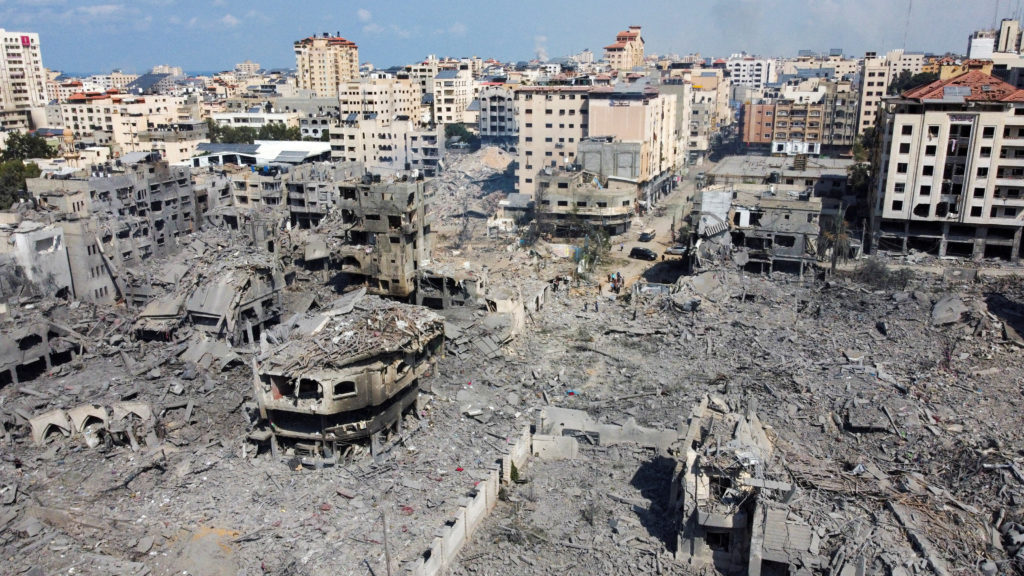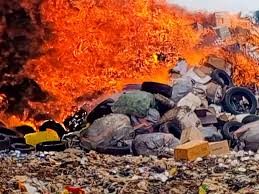Editorial
Task Before Committee On Unhealthy Meat
Health is wealth is an old maxim no man has faulted till date. It simply implies that only the living can be rich; a man needs to be alive to be wealthy.
In spite of the veracity of this all-time proverbial saying, it is distressing to note that good health is mostly observed in the breach in the Nigerian society. The negligence and lip service paid to the safety of human lives is more frightening, especially in the present realities when strange illnesses such as the Coronavirus is ravaging the world.
Yesterday, it was Ebola and Lassa fever. Today, it is COVID-19. Who knows what next? Instructively, most of these pandemics are from animals.
The recent revelation about the importation of dead animals and other deleterious meat into Rivers State is one sad example of how a lot of Nigerians flirt with diseases and disasters.
According to reports which the Rivers State Commissioner for Agriculture, Dr Fred Kpakol, and the state House of Assembly have confirmed, most of these meat which are from cattle that died in the course of haulage from the Northern part of the country came into the state through different axis, especially Okigwe in Imo State where they were first disembarked for circulation in the South-South and South-East zones.
The butchers, mostly those who buy from ranches and cattle owners, blamed the menace on a long chain of secret merchants who are not members of the butchers association.
There were further revelations that most of the animal skin in circulation (a popular delicacy among the people) commonly known as ‘kpomo’ are from dead donkeys and horses illegally brought into the state and are usually preserved with formalin to make them look attractive.
The Tide believes that this unsavoury development in the state is an evidence of either ignorance, negligence or complacency by both stakeholders in the meat industry and government officials saddled with the responsibility of checking these infractions.
We wonder why anyone would intentionally flirt with epidemic of disease and even death which the unhealthy practice is capable of sparking up. Why would anyone compromise the safety of his fellow citizens in the name of making cheap profit?
It has, therefore, become imperative for the state government, especially the Committee on Unhealthy Meat, to rid the state of unhealthy and pernicious meat capable of endangering the lives of the citizenry.
The committee has the onerous duty to be more stringent in its oversight functions on all approved abattoirs in the state. All abattoirs must be certified by the relevant government agencies, while no livestock should be killed without inspection by veterinary doctors.
We want to believe that there is a law that forbids the sale of adulterated or misbranded livestock and derived products as food, even though it has proved ineffective in regulating many unsafe and unsanitary practices by butchers and meat sellers. The same law mandates that all livestock such as cattle, swine, sheep, goats and horses are slaughtered and processed under good sanitary conditions and also confers on the government the right to inspect them before and after they were slaughtered and processed for human consumption.
We expect this law to be strictly enforced while any perverter caught in the act should be made to face the music. The law should also apply to imported products which are treated under similarly rigorous foreign inspection standards.
Meanwhile, the state government should increase surveillance across the borders of all local governments in the state to check the importation of dead or contaminated livestock into the state. If possible, the Committee on Unhealthy Meat should reach out to the governments of neighbouring states where these unhealthy meats are coming from.
We commend the move by the state government to build more abattoirs in the state, at least, to reduce the congestion witnessed in the existing abattoirs in the state. But beyond this, the government owes it as a duty to sensitise the citizenry on the dangers inherent in selling contaminated meat and meat from dead animals to consumers.
There is no doubt that the state government has made several efforts to restore sanity in the state abattoirs and markets, but the efforts remain a long way off.
We say this because we observe that some of the government officials who are saddled with the responsibility of overseeing the state abattoirs and those whose duty is to inspect livestock animals before and after slaughtering are guilty of incompetence, negligence, indifference or outright complacency.
We, therefore, charge the Committee on Unhealthy Meat, and the state Ministries of Health and Agriculture to reign in on sanitary inspectors and veterinary doctors to be above board in the discharge of their duties, and prioritise public safety.
We should not wait until when we begin to record deaths before we know the gravity of the health challenge this criminal habit of selling deleterious meat poses to humanity. A stitch in time saves nine.
Editorial
New Federal Varsity In Ogoni

President Bola Ahmed Tinubu has made history by signing into law a bill that establishes the Federal Univer-
sity of Environment and Technology in Ogoni, Rivers State. This significant occasion marks a bold step forward not only for the Ogoni people but also for the Niger Delta region and Nigeria as a whole. It signifies a commitment to education, environmental sustainability, and technological advancement.
For the Ogonis, who have long been impacted by environmental challenges, the university represents a beacon of hope. It is more than just bricks and mortar; it is a symbol of empowerment and a pathway to a brighter future. This development is akin to a seed, planted with the promise of a flourishing harvest of skilled professionals.
The university’s emphasis on environmental technology is extremely important, especially given Nigeria’s climate crisis. Education plays a crucial role in developing sustainable solutions. The institution will provide students with the necessary skills and knowledge to address the environmental challenges affecting the Niger Delta region and beyond. This will have a momentous impact.
Signing the bill, the President praised the Ogoni people’s resilience and unity. He stressed that the institution would mark a “significant milestone in our national journey towards environment justice, education and sustainable development”. Tinubu said the university is a reaffirmation of his administration’s “unwavering commitment to the people of Ogoni, the Niger Delta and the nation as a whole. For decades, the Ogoni people have been at the forefront of fight for environmental restoration and sustainable development, shaping both national and global conversation of these critical issues.
“By signing this bill into law, we are taking a decisive step towards addressing historical grievances and creating new opportunities for learning, growth and prosperity. The university will serve as a centre of excellence, equipping young Nigerians with the knowledge and skill to tackle present environmental challenges, drive clean energy solutions and contribute to our national sustainable economic development.”
We commend President Tinubu for his visionary decision to establish the much-needed institution aimed at fostering development and progress. This initiative is a testament to his commitment to addressing critical social and economic knots and creating opportunities that will benefit the people. The President has laid a solid foundation for sustainable growth while demonstrating a genuine desire to empower and advance the nation’s collective interests.
In addition to his commendable action, we applaud Tinubu for initiating peace talks to bring stability and reconciliation to the troubled area. The decision to engage in constructive dialogue demonstrates a deep understanding of the relevance of inclusive governance and the role of peace in fostering meaningful development. For decades, Ogoni has endured turmoil and neglect, impeding its potential and the return of oil exploration activities.
By opening the door to peaceful negotiations, the President has made a bold and necessary move towards healing fractured relationships and fostering trust among stakeholders. This initiative holds the promise of ensuring that the voices and needs of the Ogonis are heard and respected. We urge all parties involved to seize this golden opportunity for lasting peace and progress. It is only through unity and mutual respect that the full potential of Ogoni, and by extension the nation, can be realised.
As steps are taken to acknowledge and remediate the damage caused by years of oil exploration and production, the Ogonis must reciprocate Mr. President’s gesture by fostering a climate of equanimity and stability. This will ultimately pave the way for the resumption of oil exploration and production. This is not a call to forget the past, but a pragmatic recognition that meaningful change and sustainable development require a collaborative approach.
The Federal Government has a responsibility to ensure that all academic disciplines offered by the new university are fully accredited to maintain the integrity and quality of the school. Without proper accreditation, the institution risks producing graduates who are ill-equipped to compete in the global workforce or contribute substantially to national development. Accreditation serves as a benchmark that ensures programmes meet academic standards and adhere to best practices across various fields of study.
Staff recruitment should be conducted carefully, as the individuals brought into a team can greatly influence an organisation’s performance, culture, and long-term success. The primary focus of recruitment efforts at the university should be on attracting the best candidates who possess the necessary skills, qualifications, experience, and values. Merit should be the guiding principle in decision-making throughout the hiring process, rather than favouritism or personal bias.
For a nation to thrive in the 21st century, a strong higher education system is not only desirable, but essential. Universities serve as the catalysts for innovation, the breeding grounds for future leaders, and the foundations of a knowledge-based economy. The Federal Government must acknowledge this vital role and take intentional actions to properly fund the university in Ogoni and develop infrastructure to ensure it meets international standards. Neglecting this responsibility would put its future prosperity and global competitiveness at risk.
This institution must not suffer the same fate as other federally-owned universities that have been left to decay. That will be a disservice to its purpose and potential. Many government-owned universities in the country have struggled with dilapidated infrastructure, underfunding, insufficient staffing, and interruptions caused by industrial actions due to unpaid wages or poor working conditions. These challenges have led to declining standards in education, putting both students and staff at a disadvantage. The Ogoni University must not be another victim of this worrying trend.
Editorial
HIV, Transiting From Donor Dependence

The initial announcement by United States President, Donald Trump, to cut funding for international
HIV/AIDS initiatives sent shockwaves through the global health community. In Nigeria, a country facing a significant HIV/AIDS burden, the potential consequences were dire. However, the subsequent waiver granted by the administration has provided a lifeline for the millions of Nigerians who rely on the President’s Emergency Plan for AIDS Relief (PEPFAR) for their treatment and support.
PEPFAR has been an important partner in Nigeria’s fight against HIV/AIDS. Since its inception in 2003, PEPFAR has committed more than $7.8 billion to the country, catering to approximately 90 per cent of HIV treatment requirements. With this funding, Nigeria has been able to enhance its HIV prevention, treatment and support services and has witnessed a reduction in HIV/AIDS deaths.
The waiver granted by the Trump administration guarantees that PEPFAR’s life-saving medicines and medical services will continue to reach the needy. Antiretrovirals (ARVs) are the most common type of medicine used to treat HIV and reduce the virus’ spread. Through the provision of ARVs, PEPFAR helps prevent the spread of HIV and enhances the quality of life of those with the condition.
Although Nigeria was recently exempted from the requirement, the signs are evident: the country has to graduate from dependence on donor funds for its HIV/AIDS control programmes. Over the years, partners including the U.S. government have been central to the provision of treatment to people living with the virus. However, it is time for Nigeria to own its national response to HIV/AIDS.
Nigeria’s HIV/AIDS burden remains critical, accounting for 10 per cent of the global total. In 2023 alone, there were 75,000 new infections and 45,000 HIV-related deaths. The battle against Mother-to-Child Transmission remains challenging, with only 35 per cent of the target 75 per cent being met. Nearly 1.7 million Nigerian children have been orphaned due to HIV. Vulnerable populations, especially women and children, continue to disproportionately suffer.
To transition away from donor dependence, a multifaceted approach is necessary. Firstly, the country must increase its domestic financing for HIV/AIDS programmes. This can be accomplished through innovative funding mechanisms, such as leveraging public-private partnerships and exploring local revenue sources. Secondly, the government needs to strengthen its healthcare system to ensure equitable access to testing, treatment, and care. This involves expanding access to antiretroviral drugs, investing in community-based models, and addressing the stigma associated with HIV.
Thirdly, Nigeria must prioritise prevention efforts. This entails promoting condom use, providing comprehensive sexual education, and increasing awareness about the risks and modes of transmission. By focusing on prevention, the country can decrease the incidence of HIV infections and ultimately lessen the burden on its healthcare system.
Finally, Nigeria should develop a sustainable human resource strategy for its HIV/AIDS response. This involves training and equipping healthcare workers, engaging community volunteers, and empowering people living with HIV to advocate for their rights. A well-trained workforce is essential for delivering high-quality services and ensuring the long-term success of the response.
The transition beyond donor dependence is a complex but necessary journey for the country. By increasing domestic financing, strengthening healthcare systems, prioritising prevention, and investing in its human resources, the country can create a sustainable and effective response to HIV/AIDS. Also, the government should consider alternative funding mechanisms, such as increased domestic funding, public-private partnerships, and philanthropic initiatives. The time to act is now, for the well-being of present and future generations.
Nigeria’s National Agency for the Control of AIDS (NACA) has made momentous strides in combating HIV/AIDS, including expanding access to testing, treatment, and education. However, challenges persist, hindering the effectiveness of these efforts.
One major obstacle is limited access to healthcare facilities, particularly in rural areas. This impedes timely diagnosis and treatment, reducing the likelihood of optimal outcomes for those living with HIV. Additionally, stigma surrounding the disease remains a formidable barrier, preventing individuals from seeking testing and care. Inadequate awareness campaigns further contribute to low testing rates and delayed diagnosis.
Addressing these challenges requires concerted action by the government and stakeholders. Allocation of adequate funding is crucial to expand healthcare infrastructure and ensure the availability of essential services. Moreover, targeted interventions to reduce stigma and promote awareness are vital for increasing testing and early detection.
Collaboration between civil society organisations and grassroots movements is also essential for advocating for protection of HIV funding. Advocacy campaigns can mobilise public support and pressure lawmakers to prioritise the fight against HIV/AIDS. By addressing these challenges and ensuring sustainable funding, Nigeria can depend less on donor countries, drastically reduce HIV transmission, and provide the necessary care to those affected by the disease.
Editorial
Israel-Gaza War: Sustaining The Ceasefire

-

 Sports2 days ago
Sports2 days agoA’ Ibom’s Ready To Host Niger Delta Sports Festival-Eno
-

 Oil & Energy2 days ago
Oil & Energy2 days agoNNPC Debunks Explosion Claim In Warri Refinery
-

 Rivers2 days ago
Rivers2 days agoNAFDAC Destroys N4.7bn Worth Expired, Substandard Products In Rivers
-

 Sports2 days ago
Sports2 days agoCity’s January Spending Propelled By Fears Of Transfer Ban?
-

 News2 days ago
News2 days agoAccess CALM Fund To Convert Vehicles To CNG, FG Urges Nigerians
-

 Politics2 days ago
Politics2 days agoLG Autonomy: NBA To Host Talks On S’Court Verdict Implementation
-
Education2 days ago
Council Boss Charges Corps Members To Promote Peace
-

 Sports2 days ago
Sports2 days agoLASG Tasks Officials, Athletes On Maintenance Of Upgraded Sports Facilities

